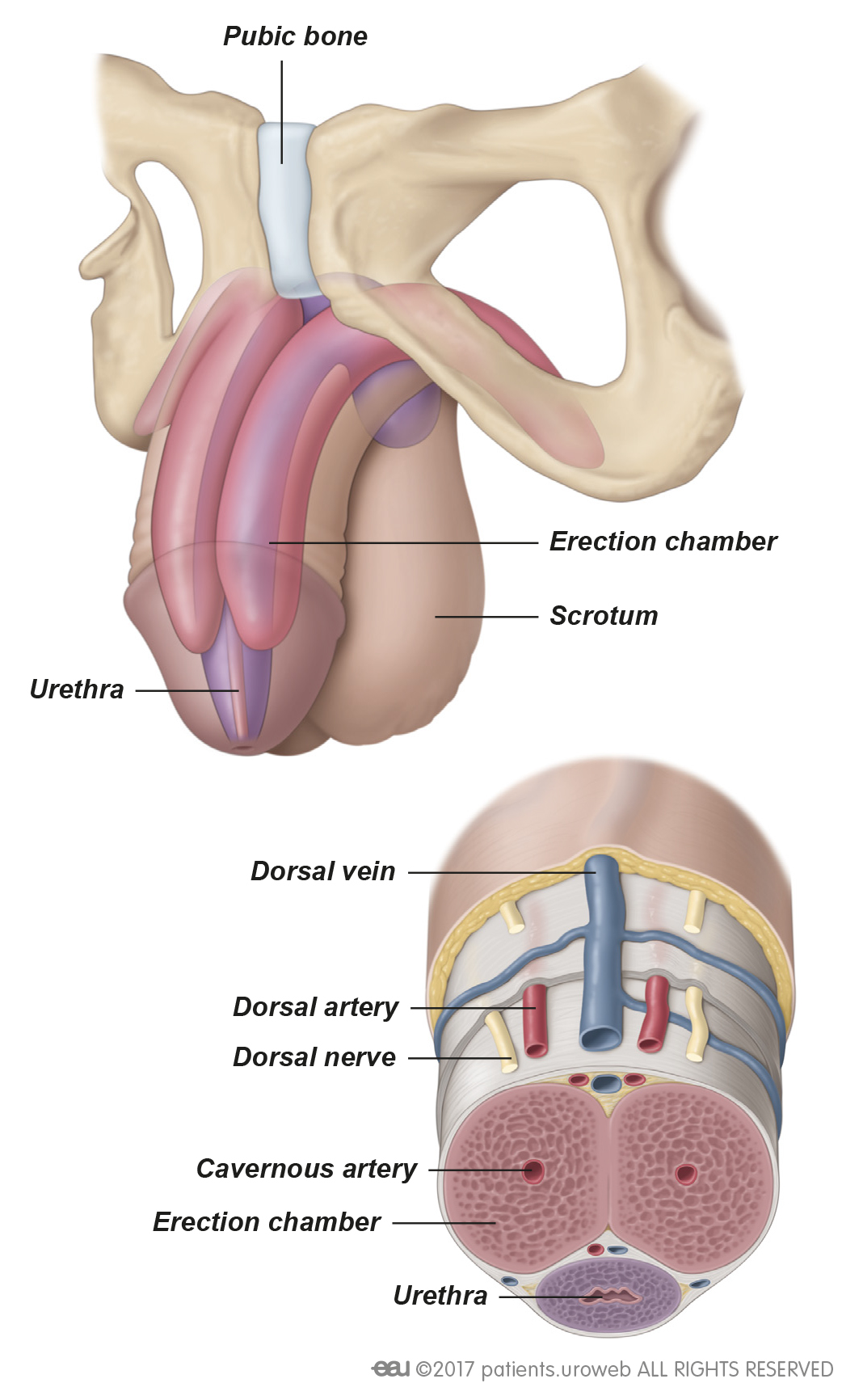Erectile dysfunction
What is erectile dysfunction?
Erectile dysfunction, also known as impotence, is defined as the inability to get and keep an erection that is firm enough for sufficient sexual activity. It is distinct from occasional ‘performance anxiety’ or unexpected inability to perform, which most men are affected by from time to time (often due to performance anxiety or alcohol consumption).
Though libido decreasing with age is relatively normal, erectile dysfunction is not considered normal at any age. For expert diagnosis, treatment, and ongoing erectile dysfunction support in Bendigo, ask for a referral to Sandhurst Urology.


Symptoms
The key symptoms of erectile dysfunction can be identified on your own by assessing your own performance. They include:
- Difficulty getting an erection
- Difficulty maintaining an erection long enough for sufficient intercourse
Men who suffer from erectile dysfunction may also suffer from the following conditions, which may cause or exacerbate their symptoms:
- Anxiety
- Depression
- Low libido
- Low self-esteem
- Low sexual satisfaction
How erectile dysfunction is diagnosed
Most men can diagnose erectile dysfunction on their own by considering their performance and reasoning whether their ability to achieve and retain an erection is sufficient for their needs.
In a clinical environment, your doctor aims to diagnose the erectile dysfunction’s cause and determine which treatments are most likely to alleviate it. The tests used to do this may include:
- Physical examination – the doctor may inspect the penis, testicles, prostate, and other parts of the body to determine whether a physical abnormality causes the problem.
- Blood tests – these are analysed in a pathology lab for signs of heart disease, diabetes, or testosterone deficiency which can indicate underlying health issues causing the dysfunction.
- Urinalysis – similar to blood tests, these are sent to a pathology lab and analysed for signs of diabetes or other health disorders which may contribute to erectile dysfunction.
- Ultrasound – this test uses sound waves to create an image of the soft structures inside the testicles, allowing your doctor to see venous abnormalities and blood flow disorders if they are present. It may be performed with an injectable dye which provides the doctor with a clearer image.
- Stamp test – though now considered outdated, the nocturnal penile tumescence (NTP) or stamp test may help justify your concerns if you feel hesitant to approach your doctor without concrete evidence of your symptoms. Read Healthline’s informative article for more information on this test and details on how to perform it at home.
Preventing erectile dysfunction
Erectile dysfunction has a very wide range of causing and influencing factors, many of which can be managed with the help of a health professional.
- Manage your mental health – stress, depression, and anxiety are all known contributors to erectile dysfunction. Developing healthy coping mechanisms and speaking to a mental health professional about managing stress may therefore help prevent it.
- Monitor your heart health – erectile dysfunction is associated with many conditions which affect blood flow, including high blood pressure, heart disease, and high cholesterol. Managing these conditions in consultation with your GP or heart specialist may help prevent erectile dysfunction.
- Keep your diabetes under control – men with diabetes have a higher risk of erectile dysfunction due to potential long-term nerve damage from increased blood sugar levels. If you suffer from any type of diabetes, monitoring your sexual health and consulting your doctor at the first sign of difficulty can prevent lasting dysfunction.
- Review medication use– some medications, particularly SSRI antidepressants and beta-blockers that treat many heart conditions, can inhibit both sexual desire and the ability to form and maintain erections. If you take other medications regularly, consider researching whether they produce sexual side effects. Please seek medical advice from your GP or specialist before stopping any medication.
- Maintain a healthy lifestyle – avoiding tobacco use, excessive drinking, a sedentary lifestyle, and unhealthy eating habits may reduce heart disease and other conditions which contribute to erectile dysfunction.

Treatments for erectile dysfunction
In many cases, treating erectile dysfunction involves treating its underlying cause. The range of therapies used to do this may include one or more of the following:
Medical interventions for erectile dysfunction
Erectile dysfunction is only treated with surgery in rare cases, typically if all other courses of treatment have failed and/or if a man has a significant physical health concern which impacts his ability to maintain an erection.
Penile prosthetic implants are the primary avenue of surgical treatment. These come in two main varieties – semirigid and inflatable – which operate in different ways and are suited to particular conditions. Our specialist physicians at Sandhurst Urology provides expert assessment on which device is appropriate, as well as penile prosthetic surgery.
Though these devices allow men to produce and maintain an erection as desired, they do not increase sensation or sexual desire. They also do not increase the erect penis’s size.
As these mechanisms are expensive to implant, they are typically recommended only if all other probably treatments have failed. To learn more about penile prosthetics, visit the Mayo Clinic’s informative article on how they work.
In rare cases where the cause of erectile dysfunction is trauma to the veins and arteries which permit an erection, vascular surgery may help men regain sexual function. As this is a major operation, it is rarely used and typically recommended only as a last resort.
Providing Excellent Urological Care of the Highest Standards
Book a consultation with Sandhurst Urology today